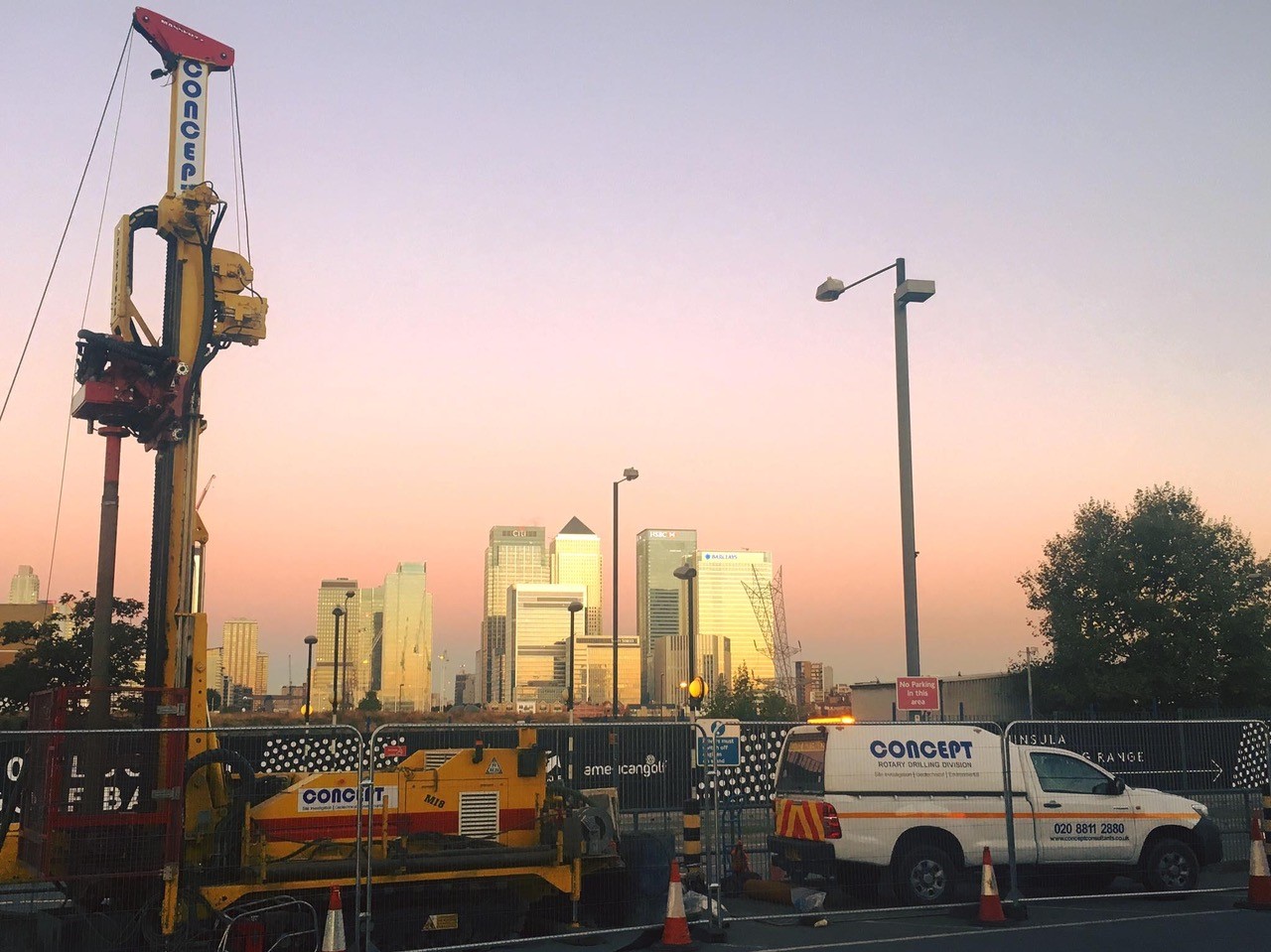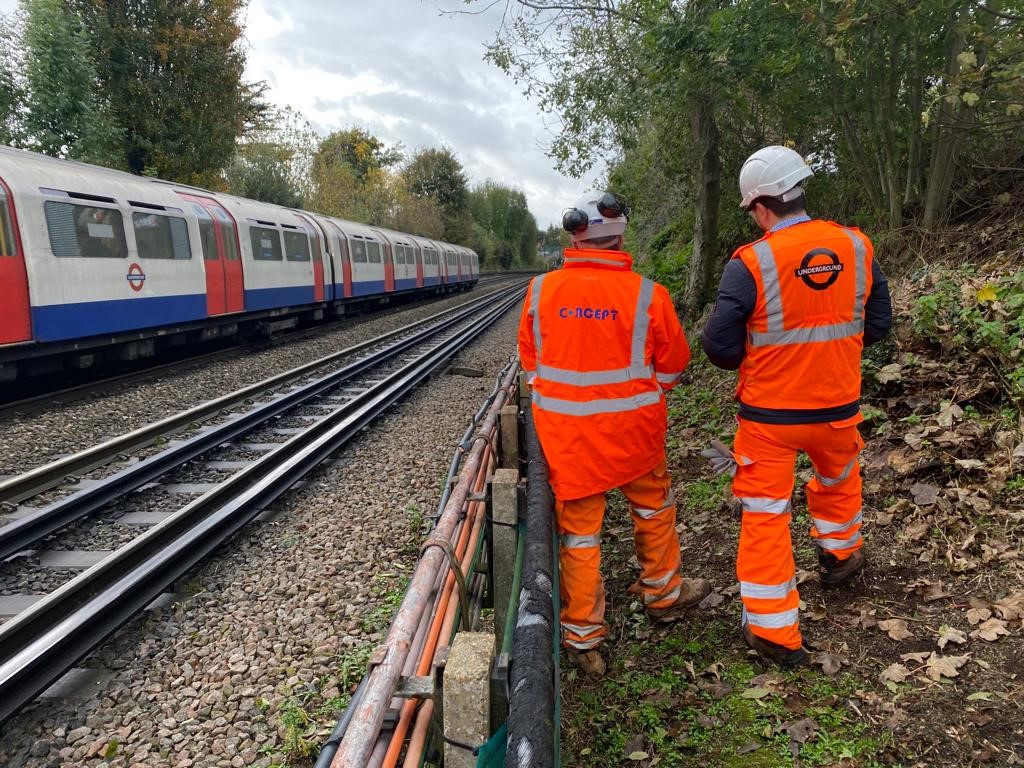Concept Engineering Consultants has gained a firm foothold in the ground investigation market by taking on challenging work. Twenty five years
on, the business is pursuing “purposeful growth”.
Ground investigation technology has been a fast developing part of the construction supply chain in recent years and leading players are well established as early adopters of new techniques. Engineers today can usually take it for granted that they will have high quality, crucial data at their fingertips to inform their designs.
It was not always like that. Concept Engineering Consultants has been at the fore of these developments since its inception 25 years ago. The company is now expanding beyond its London roots, spreading its reputation for a quality approach to conducting the most technically challenging projects to a widening client base.
Origins
Concept’s origins were in subsidence and other ground related structural problems. It later moved into mainstream site investigations. Now it is a go-to choice for complex site investigations on challenging sites, with an approach that combines consultancy with specialist contracting services across geotechnical, structural and geo-environmental services.
A United Kingdom Accreditation Service (Ukas) accredited “superlab” in Coventry now augments the original London operations, providing overnight turnaround in soil sample analysis, which is proving invaluable to the High Speed 2 (HS2) programme. Another new office in Yorkshire could be on the cards too.
The company now employs 106 staff. Of those, between 40 and 50 are site drillers and other skilled operatives. Around a dozen work in the laboratory and there are 20 geotechnical engineers, plus structural engineers and administrative and marketing staff. Turnover was running at a steady £6M to £7M when based in London, but it doubled thanks to HS2. The target for 2022 is £12.3M as the company pursues “controlled, purposeful growth”.
Growth so far has been internally financed, but resources are focused on research and development and it is usually in collaboration with clients and academia.

London has been Concept’s home market until recently but it is now establishing a reputation in the Midlands on the back of HS2 work
“It tends to be confidential so we don’t say a lot about it, but the investment helps ensure that the service we can offer clients stays at the forefront of technology,” says Concept managing director Natalie Bews. Most recently Concept has developed an articulated “arm” for sampling material behind retaining structures.
The market Concept serves now gets more value from reducing financial and other risks by investing upfront in early specialist ground investigation.
“Things have certainly come a long way since Anastasia Savidu and Milan Dedic saw the need for specialist services like ours and founded the company,” says Bews. “They found that clients often didn’t know what services were available beyond the most rudimentary soil analysis.
“Educating clients in what was available, and even what to ask for to obtain the best investigations, was part of the strategy from the beginning.”
Bews is an engineering geologist with a background in business development. She has been in the industry for more than 25 years after starting out in the laboratory. She joined Concept in 2018 when the founders were purposely looking to expand and grow their business outside of London.
Her enthusiasm for the role and for the industry comes across strongly in conversation. She has wide ranging ideas for improvements in areas as diverse as helping clients achieve more for their money and for attracting people into
the industry.
Educating clients in what was available, and even what to ask for to obtain the best investigations, was part of the strategy
The skills crisis is a firm focus for Bews. With more and more of the UK’s construction projects likely to be on brownfield sites, demand for specialists in complex site investigations is only going to grow. Analysis has become more sophisticated over the years, now encompassing the impact of structures on the ground as well as measuring the impact of ground conditions on existing structures.
“Both have to be thoroughly investigated, we need to understand the pathology of a structure, so the most efficient engineering designs can be produced. Proper investigations save money and are a proven key to risk management,” explains Bews.
A lot of the company’s work is in tunnels and other locations where Concept’s “stealth investigation” approach comes into its own.
“Working on the Jubilee Line remediation was an early project of ours where we were drilling through tunnel linings during possessions to establish the cause of movement,” says Bews.
“We can drill down from the highway to great depths in very congested sites, with minimal impact on the public or businesses. We are given possessions of tunnels where we fix our equipment to the sides and tunnel walls, enabling intrusive investigation in all directions. We also use parallel seismic geophysics with other non-destructive techniques, to make sure we get all the data our client needs first time.”
Other complex work might take place in deep basements. “These technically challenging projects where there are always time and financial constraints can only be successfully carried out by fully collaborative construction teams. Our spirit is that anything can be done. Just tell us what is needed and we will work out a way to obtain the data for designs.”
Having established a sound reputation in London, Concept decided to expand by opening a new office in the Midlands, mirroring the London operations set up.
“One of our strengths in London has always been our local workforce, who can all get home to their families at the end of the working day,” says Bews. “We think that is important and we didn’t want to start sending teams of drillers and engineers to distant locations, so we decided to open in Coventry.”
Major success on High Speed 2
This development went hand in hand with major success on HS2 where Concept has had up to eight drilling rigs active. “Our turnover doubled thanks to HS2,” says Bews. “Bottlenecks tend to arise on major investigations at the laboratories rather than on site, so establishing a new geotechnical laboratory within the market was key to growth plans and being able to meet programme and market demands. Now samples are received daily at the new superlab at Coventry which is fully accredited for soil and rock testing.
“On HS2 we took a flexible approach where we would move our teams to another part of the project or indeed to another contract if access wasn’t readily available in accordance with the contract programme.
“That is the sort of collaborative, can-do approach that the company has been built on, and we are sure it will support our next stage of growth.”
- Published in association with Concept
Like what you've read? To receive New Civil Engineer's daily and weekly newsletters click here.
 New Civil Engineer Civil engineering and construction news and jobs from New Civil Engineer
New Civil Engineer Civil engineering and construction news and jobs from New Civil Engineer

Have your say
or a new account to join the discussion.